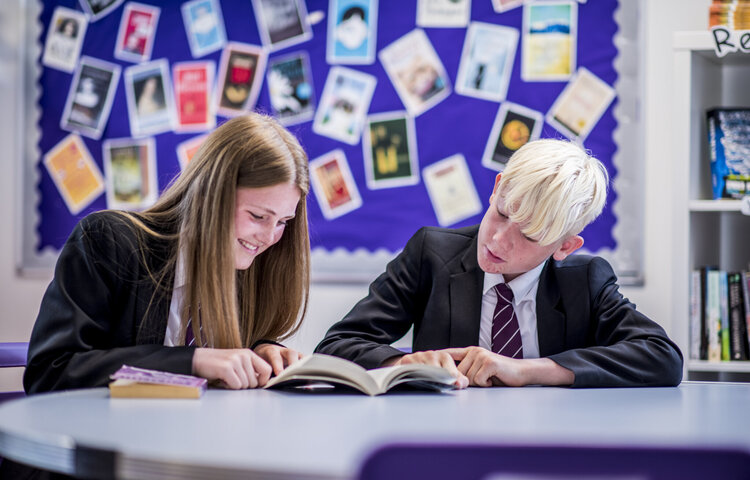Curriculum Statement
We believe in the promise of each individual and will ensure we inspire, support and challenge in proportionate measure, so that we all thrive and are able to achieve our own individual best potential.
Introduction
Our aim is to provide a broad and balanced curriculum, focused on maximising student potential and progress that allows all students to flourish and be the best they can become.
On starting at Tarleton Academy every student is allocated a Personal Tutor and is placed into a tutor group. These tutor groups contain students from every year group and each group is a member of one of four houses; Douglas, Mersey, Ribble, and Yarrow. Each house is led by a House Progress Lead and has a dedicated Pastoral & Behaviour Manager (a non-teacher dedicated to wellbeing support). Year 7 have their own dedicated Pastoral & Behaviour Manager. Tutors and the House Progress Leads, together with our Head of Learning Support and Assistant Head with responsibility for Progress and Intervention ensure cross subject overview, interrogation and intervention on progress and learning matters for individuals.
Key Stage 3 from September 2023
Students in Year 7 and 8 will continue to be taught in mixed attainment groupings for the majority of their subjects; English, Maths, Science, Modern Languages (Spanish), History, Religious Studies and PE. A smaller group of students work together following the same curriculum with additional support focused on developing literacy and learner confidence.
In order to ensure that students are able to maximise their success in subjects which research suggests will benefit from regular, weekly exposure; from September 2023, Music, Computer Science and Art will be taught alongside the majority of subjects in their main mixed attainment groupings. Drama, Food Preparation and Design and Technology will continue to be delivered on a half-termly rotation to allow students to fully immerse themselves in these subjects.
In Year 9 students are taught in shared mixed attainment groupings for English, History, Geography, Religious Studies, Spanish and PE. In Maths and Science most students are taught in mixed attainment classes with the exception of two classes, who are taught at a slightly accelerated pace. All students are taught the entirety of the national curriculum in complete breadth and depth.
Key Stage 4
All students study English Language and Literature, Maths and Science leading to GCSE qualifications and continue to participate in a core PE programme. A considerable proportion of students take 3 separate Sciences (Biology, Chemistry and Physics) within their core subject time. Students choose at least 1 GCSE option from the English Baccalaureate (EBacc) suite of subjects; Geography, History, Spanish or Computer Science and up to 2 further GCSE options from either the EBacc subjects listed earlier and/or Art, Design and Technology, Drama, Food Preparation and Nutrition, Music, Physical Education and Religious Studies and a Cambridge National in Sport Science. We also offer GCSE Dance as an extracurricular option for students who are at an appropriate performance level.
All Years
Students in all year groups have a dedicated 20 minute reading period per day. In this session, students are read to by their reading tutor. The aim of these sessions is to increase student exposure to a wide range of vocabulary and literature. Historically, students with higher literacy rates do better in their GCSEs and are aim is to give students the best chance of success in the future.
Students who have not selected to study Religious Education at GCSE receive one weekly RE session as a legal requirement.
All students in Key Stages 3 and 4 study Personal, Social, Health, Citizenship and Careers Education (PHSCE), also known as Personal Development, on 5 collapsed curriculum days throughout the year. At Key Stage 4 this includes elements of Religious Education.
Dance is available as an extra-curricular activity in Years 7 & 8 and as an extra-curricular GCSE option with Years 9 – 11.
We undertake a Curriculum Review on an annual basis that will consider Government legislation and the views of students, parents, the Local Academy Council, and staff.
Homework
Meaningful homework will be set in order to reinforce learning and promote independence. This might be set weekly, fortnightly, depending on how to best enhance learning at that point in the curriculum. We have a flexible approach to homework in as much as we don’t enforce a rigid timetable, so as to avoid the risk of homework just being set for the sake of it. Students will always engage more fully when they see there is a clear purpose. We believe in quality not quantity, so there won’t be a discernible increase at Key Stage Four – instead the work will be more focused towards curriculum understanding and GCSE exam preparation. This is to allow time for more intense revision or preparation periods at various ‘hotspots’ in the GCSE courses.
We will offer variety in the types of homework set, in order to capture different approaches to learning but it will come within the remit of either Reading, Recall or Revision. Reading homeworks are aimed at enhancing comprehension skills, developing a curiosity about the world around us and embedding research skills and critical thinking. Recall homeworks are small chunks of learning that are used to increase the retention of knowledge and skills that can then be further developed within the classroom. Revision homeworks are to prepare the students for assessments and develop strategies for independent learning.
Please contact the General Office should you wish to make an appointment
to discuss any aspect of the curriculum further.

